10 Things We Learned From WWE Survivor Series 1988
Owen's testicle had swollen to "the size of a softball"...

Oct 21, 2018
Other than the absence of a women's match at the latter event, the similarities between the 1987 and 1988 Survivor Series cards are plentiful. Both shows took place at the Richfield Coliseum, both boasted a 20-man tag to go along with three five-on-five bouts, both saw Hulk Hogan pose at the end, and both were highly enjoyable pay-per-views. If Survivor Series 1987 was an undisputed A+ (through my subjective eyes), then the sequel is at worst an A-.
The 1988 event was especially notable for the manner in which the last three matches set up WrestleMania V, with feuds like Demolition vs. The Powers of Pain, and Jake Roberts vs. Andre the Giant coming to the forefront. The main event would be responsible for storytelling that was slightly more subtle, when "Macho Man" Randy Savage made distrusting glares in the direction of partner Hulk Hogan during their celebration, feeling that Hogan was getting a little too chummy with Savage's woman, Miss Elizabeth.
There was no shortage of action (and future set-ups) at this Thanksgiving night spectacle, though in some cases the conflicts backstage were even more intriguing than what took place in front of the cameras. To say that Survivor Series 1988 was eventful would be an understatement.
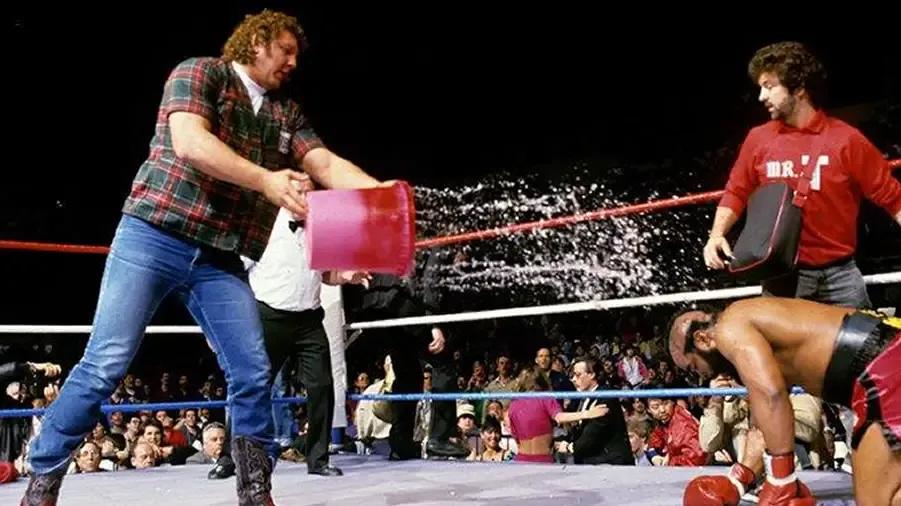
The 1988 Survivor Series wasn't the only WWE-backed pay-per-view to air in November of that year. Two-and-a-half weeks before those "teams of five strived to survive," a pay-per-view boxing match (absolutely nothing to do with the WrestleMania 2 shenanigans above) aired that was incessantly hyped on WWE's TV programs, due to a heavy investment that the company made in said fight.
Boxing icon Sugar Ray Leonard fought Donny Lalonde for the latter's WBC Light Heavyweight belt, as well as a newly-created Super Middleweight championship, both won by Leonard via a TKO in the ninth round. According to The Wrestling Observer, WWE ended up losing $4.5 million on the investment, due to not having guarantees from the cable companies, even though the fight itself grossed $9 million. Fortunately for the company, Survivor Series would be the bearer of better news.
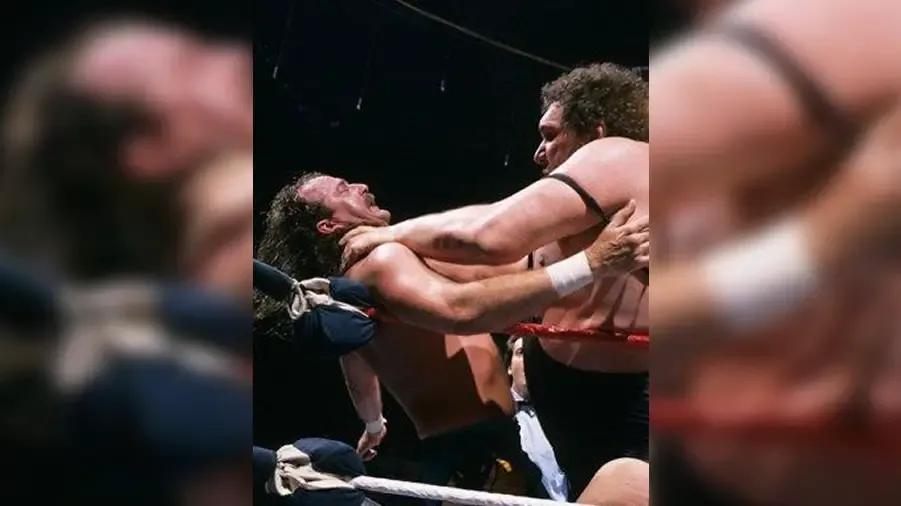
One great thing about the WWE Network (among many, many great things) is that many past events are presented in their original form. This is music to the ears of those who collected WWE and WCW videos in the late-80s and early-90s, as some of those shows would be brutally edited, hacked up with filler bits and even entire matches taken out (especially on WCW's old Turner Home Entertainment products). Survivor Series 1988 was the victim of some especially brutal slashing.
For reasons that aren't exactly clear, on the Coliseum Video release of Survivor Series '88, both the Warrior/Honky and Jake/Andre elimination bouts are cut down to almost nothing, jumping from one elimination to the next with the action in between cut out. Meanwhile, the 20-man tag is aired in full, all 42 minutes of it. Que?

Survivor Series in its first decade of existence was a haven for substitutions. I could probably do a list of "20 times that a wrestler in a Survivor Series elimination bout was switched out for someone else" and have people left over. For this example, we turn to Hall of Famer and former IC Champion Don Muraco, who was slated to appear on Ultimate Warrior's team at the 1988 event.
Muraco left the company in October 1988, a time in which Muraco admitted in a shoot interview that his body was failing him. He was pushing 40 years old, and claimed that steroid use had compromised his mobility. Coupled with his unhappiness as a babyface, Muraco met with Vince, and the two agreed to part ways. He would be replaced on Warrior's team by former Killer Bee Jim Brunzell.
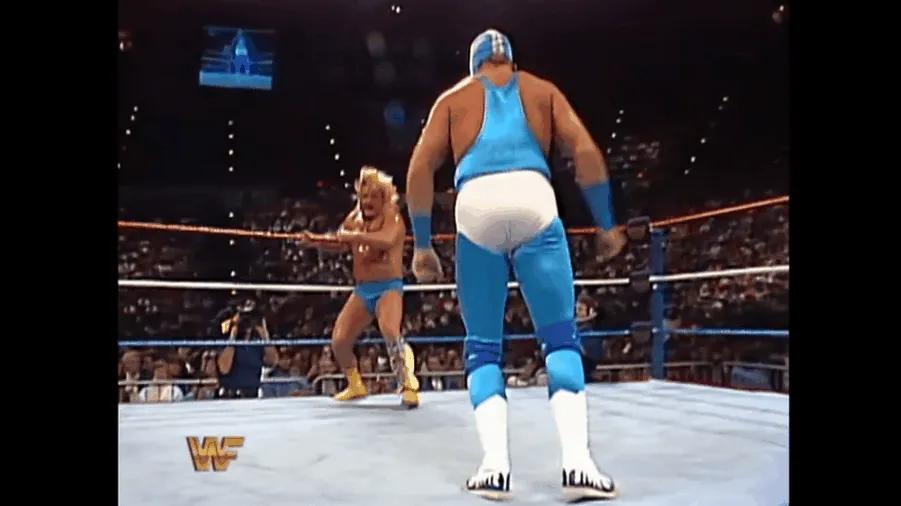
One of Warrior's other partners was 23-year-old Owen Hart, costumed at time as the captivating Blue Blazer. Owen's world-class agility and consummate wrestling acumen made him incredibly fun to watch, and he would add much to the event's opening match. But while Hart gaveth, the match in some part tooketh away, as the youngster would suffer an injury that will undoubtedly draw some grimaces once I describe it.
Shortly before Blazer's elimination, he was working with Greg Valentine, and Blazer would attempt a Leapfrog. Due to the mutual timing being a bit off, Valentine barreled head-first into Hart's groin. Though Hart managed to finish through his elimination without any noticeable distress, Bret Hart would reveal that by the following morning, one of Owen's testicles had swollen to "the size of a softball". Owen would remain out of action for about a month, returning to the road shortly after Christmas.
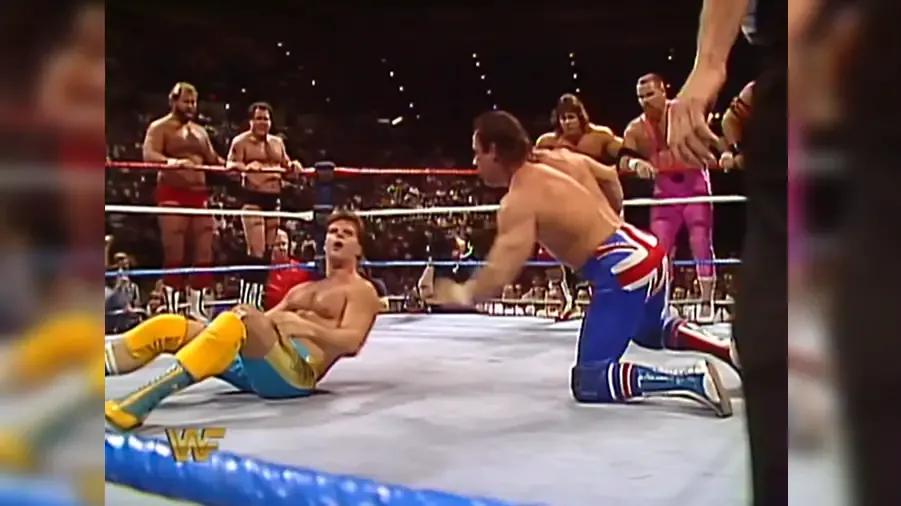
The 20-man tag was the evening's best match, and is memorable (in kayfabe, anyway) for the Demolition/Powers of Pain double-turn. In real life, the most notable part of the bout was the brief point in which Dynamite Kid and Jacques Rougeau shared a few spots. That was because more than a month earlier, the two were involved in a series of dust-ups backstage.
Though accounts from the two and others have slight variances, what's agreed on is that Dynamite took down Jacques over a rib/misunderstanding, and Jacques quietly plotted his revenge. That came at a TV taping, when Jacques ambushed Dynamite, drilling him in the mouth with a roll of quarters concealed in his fist, which knocked out several of Dynamite's teeth. WWE officials had to intervene to prevent there being any further retaliation, as the situation had the potential to get much uglier.

Bret Hart noted that Vince threatened to withhold several of Dynamite's, as well as Davey Boy Smith's, payoffs (including the plum Survivor Series check) if they were to try and retaliate on Jacques and/or brother Raymond. The Bulldogs gave their word that they would play nice, though Bret said it gutted Dynamite to comply with those orders.
The Rougeaus were eliminated five minutes into the match, while the Bulldogs wouldn't get taken out for almost another half hour. This would mark the Bulldogs' last match with WWE - Dynamite's last overall, and Davey Boy's last for nearly two years. The Bulldogs would return to what was left of Stampede Wrestling more than a week later, and would also head over to All Japan shortly after the new year.

Another substitution, another Killer Bee involved. In this case, the popular and beloved Junkyard Dog was set to be a part of Jake Roberts' team at the event, though like Muraco, he would leave the company some time before the pay-per-view. Dog had been sliding down the card for much of the previous year or so, and by mid-October 1988, JYD was gone from the company.
Initially, his replacement was the other half of the now-split Killer Bees, Brian Blair. However, Blair himself would be let go from the company in November of that year, reportedly after refusing to do a job at a TV taping. His short-noticed replacement would end up being Scott Casey, who had mostly worked as an enhancement talent throughout his time with the company.
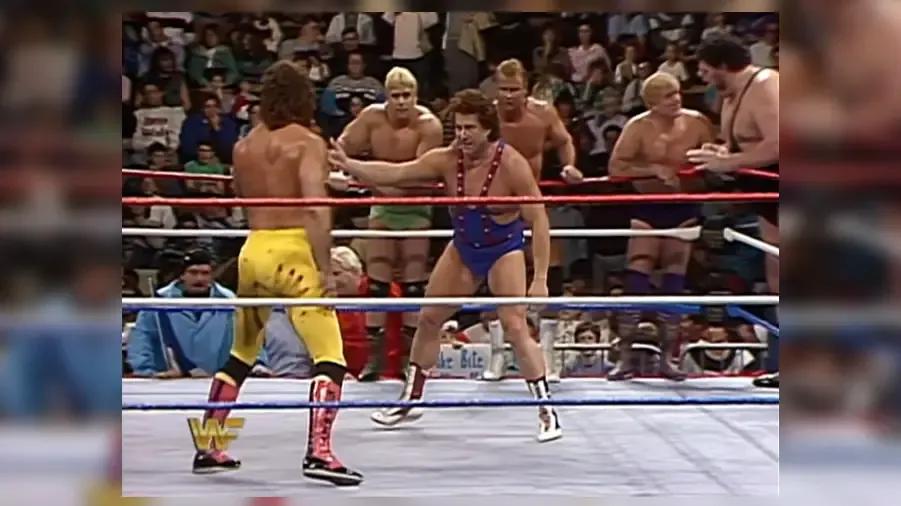
This is a rather morbid fact, so be forewarned. Much has been said about the inordinate number of deceased wrestlers from the 80s and 90s, particularly those who went far too early, and you can see it in the old Survivor Series. Some of those teams are down to only one surviving member today, and one such team was Andre's quintet from the 1988 show.
Harley Race (75 years old today) is the only living member of a team that included Andre (died in 1993, age 46), Dino Bravo (1993, 44), Rick Rude (1999, 40), and Mr. Perfect (2003, 44). Race was also born prior to each of those four men, which makes this fact a bit more alarming. Both managers of the team (Bobby Heenan and Frenchy Martin) were also born after Race, and each has since passed on as well.
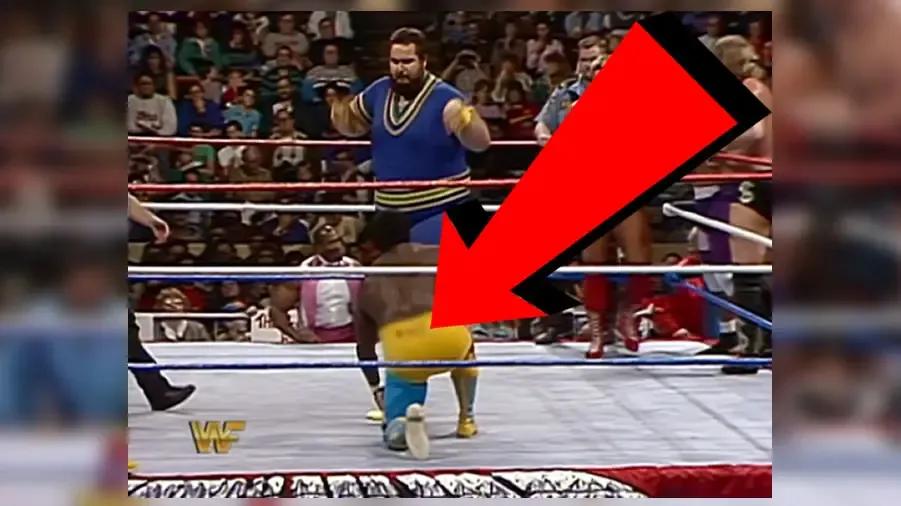
Whether it was the now non-existent need to "get the F out", or censor otherwise disputed material on their shows, WWE has made some curious edits and changes to their old programming, which can border on goofy at times. The 1988 Survivor Series sees a few interesting cases of blurring, as well as non-blurring, and they all involve backsides.
In the main event, Koko B Ware has part of his buttocks blurred by retroactive censoring (for some releases), due to him having the letters "W W F" on his tights. Yes, they went to the trouble of distorting the F, lest the Panda People get angry. Meanwhile, in another goofy instance, two wrestlers had their trunks pulled down in the context of their matches: Rick Rude and Ted Dibiase. However, Rude's bare bum was shown, while Dibiase's crevice was blurred out. What's up with the selectiveness? Why one and not the other?
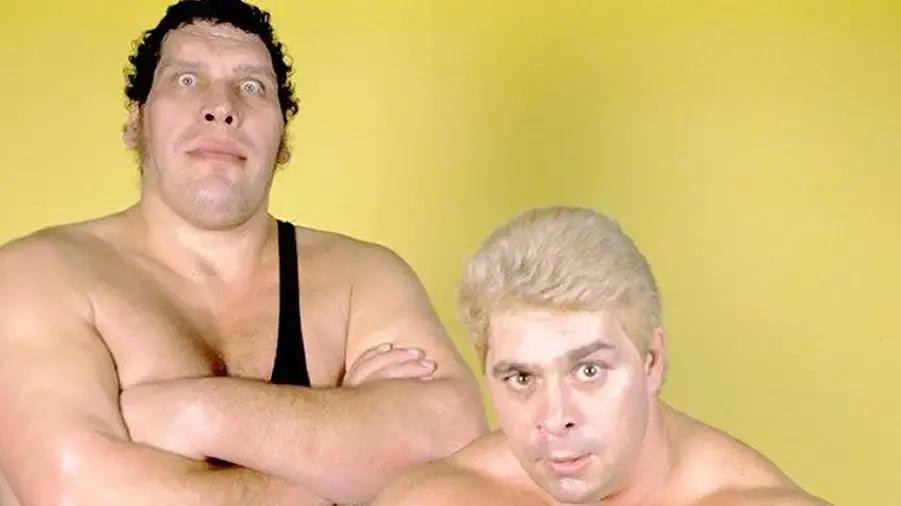
The 1988 Survivor Series was unique in one sense - each team had two captains, or "co-captains" as it were. Ultimate Warrior and Brutus Beefcake captained a team against one led by Honky Tonk Man and Ron Bass. Demolition's team faced The Powers of Pain's team. Andre and Bravo led the charge against Jake Roberts and Jim Duggan. And finally, The Mega Powers came together to lead their team against that run by The Twin Towers.
This was the only Survivor Series adhere to co-captiancy across the board, and it made sense in WWE's eyes. On the Mega Powers team, Macho Man Randy Savage was WWE Champion, so he should be the captain, right? But that would make Hulk Hogan look secondary, like a subordinate to somebody else. Faced with this predicament, WWE gave each team two captains as a means of handling that predicament.